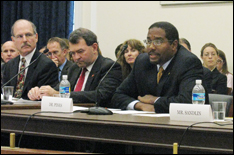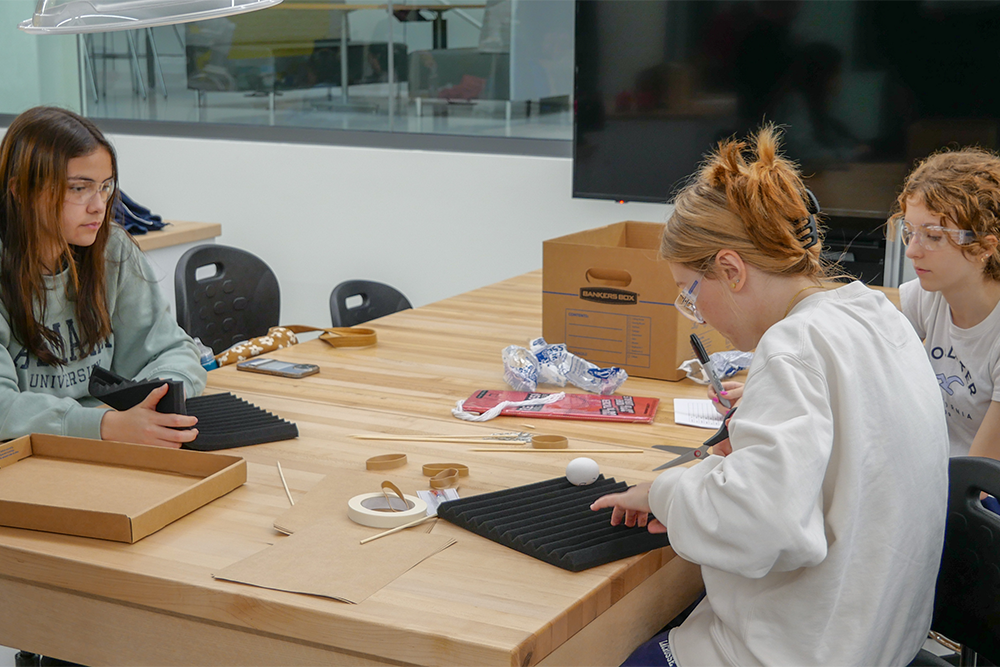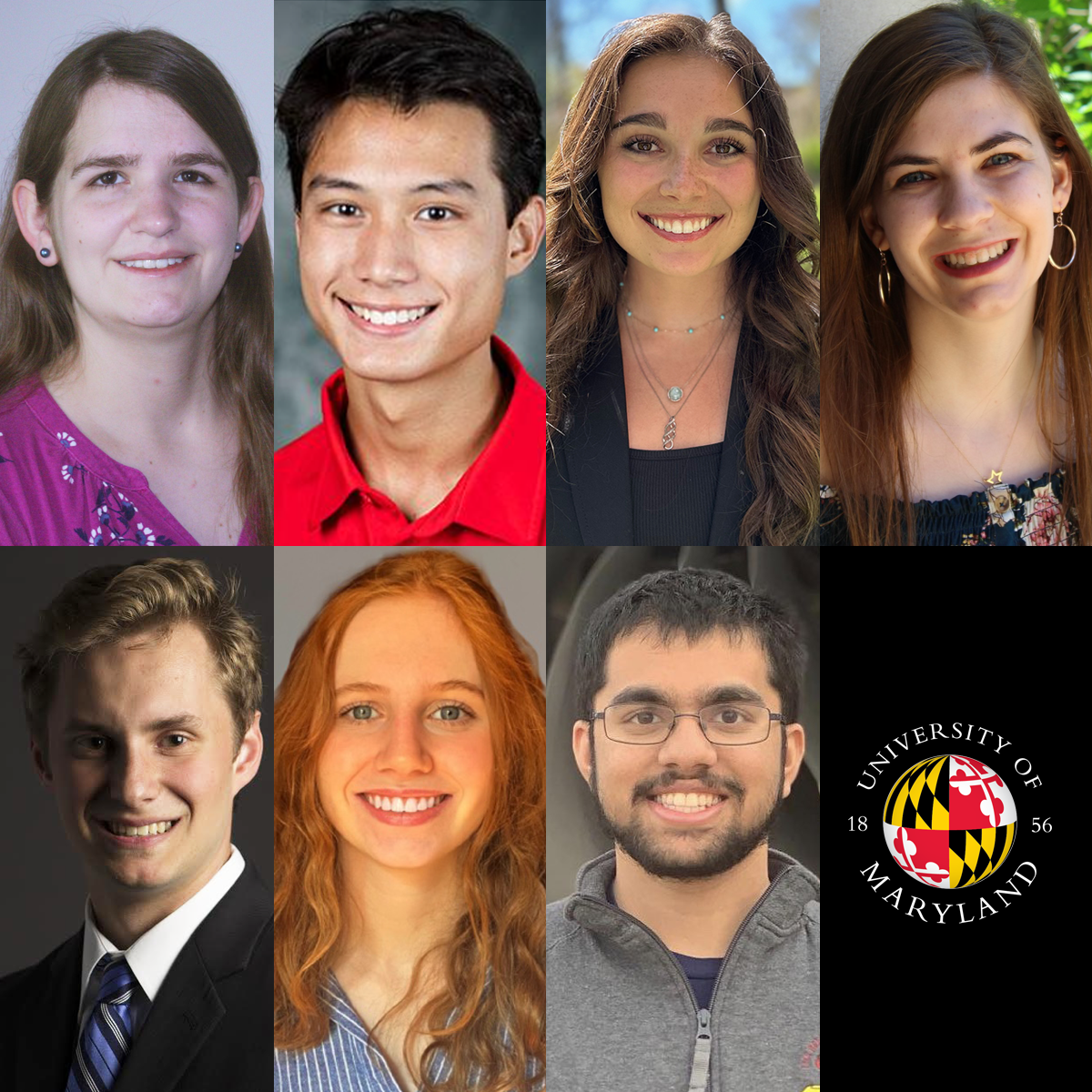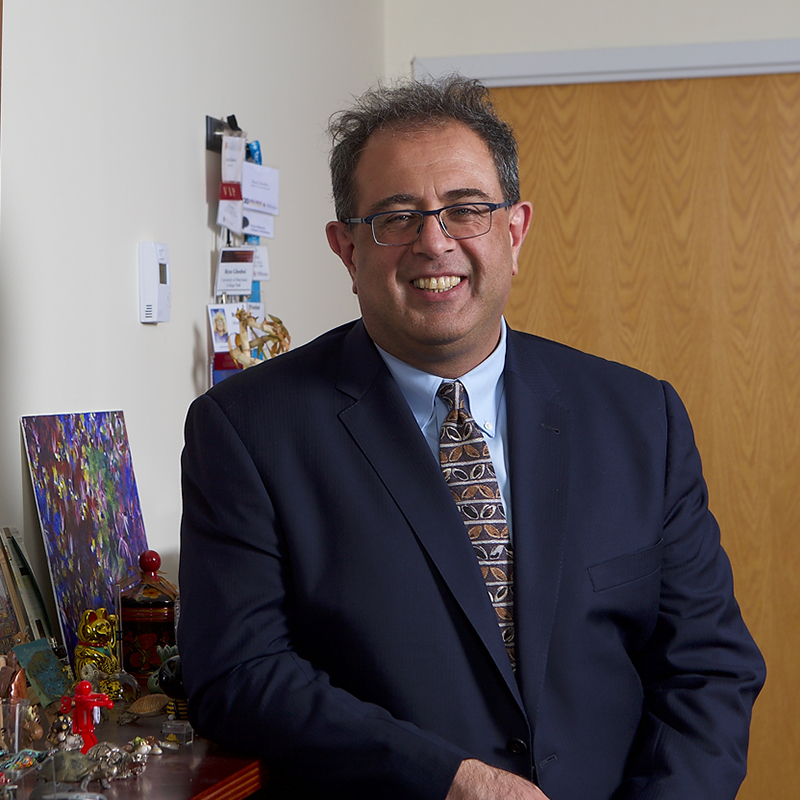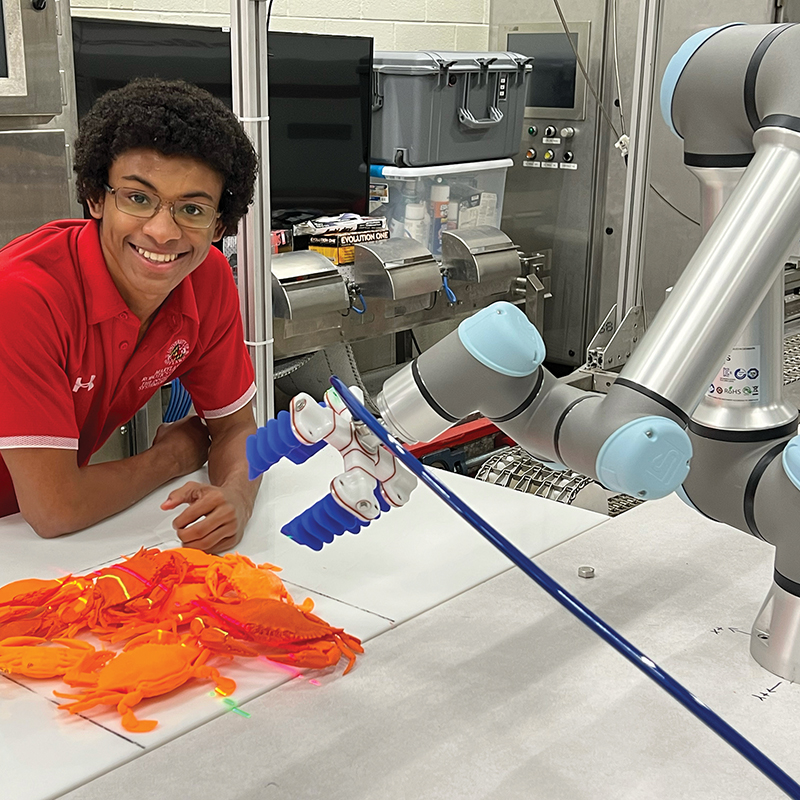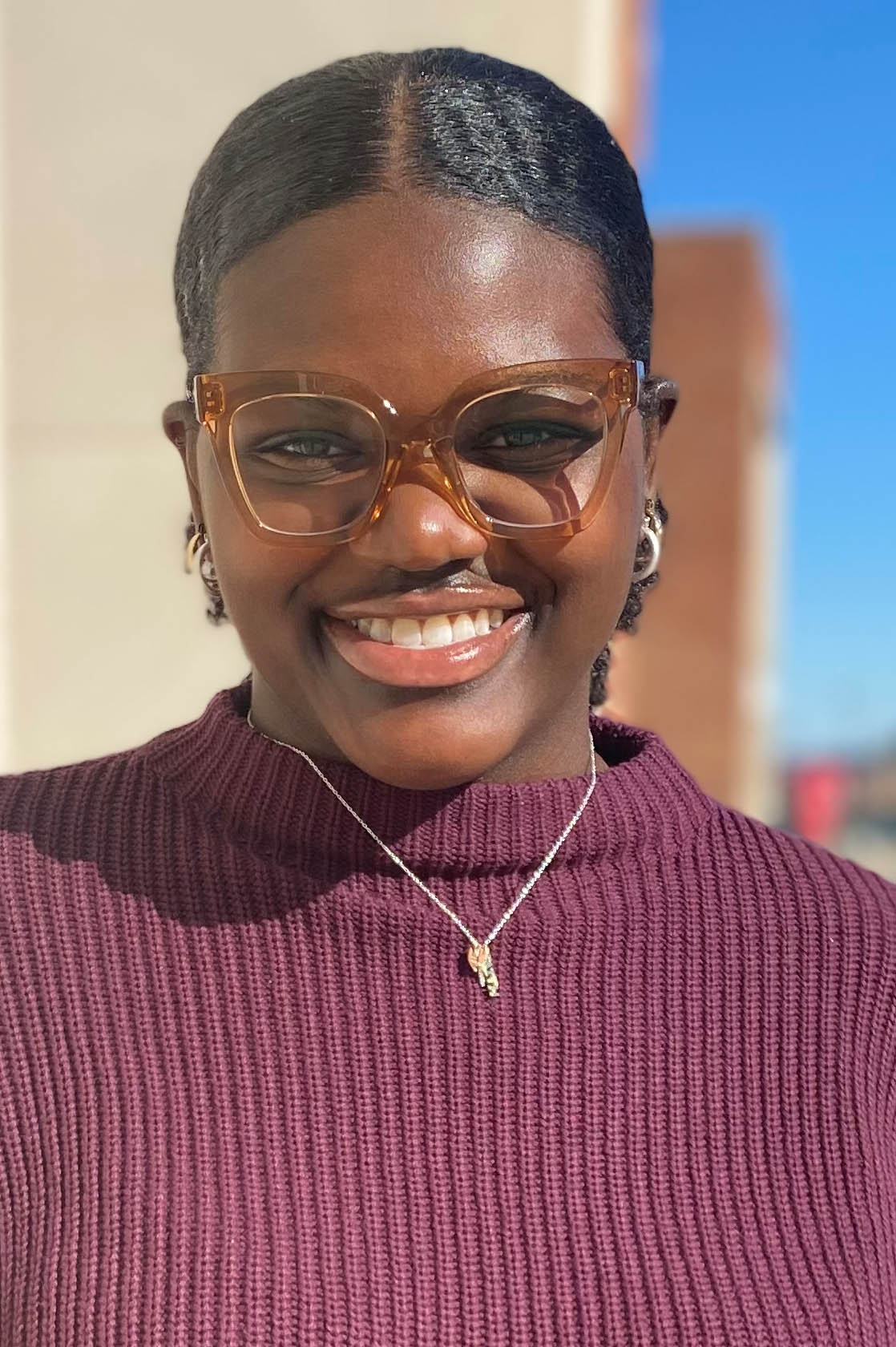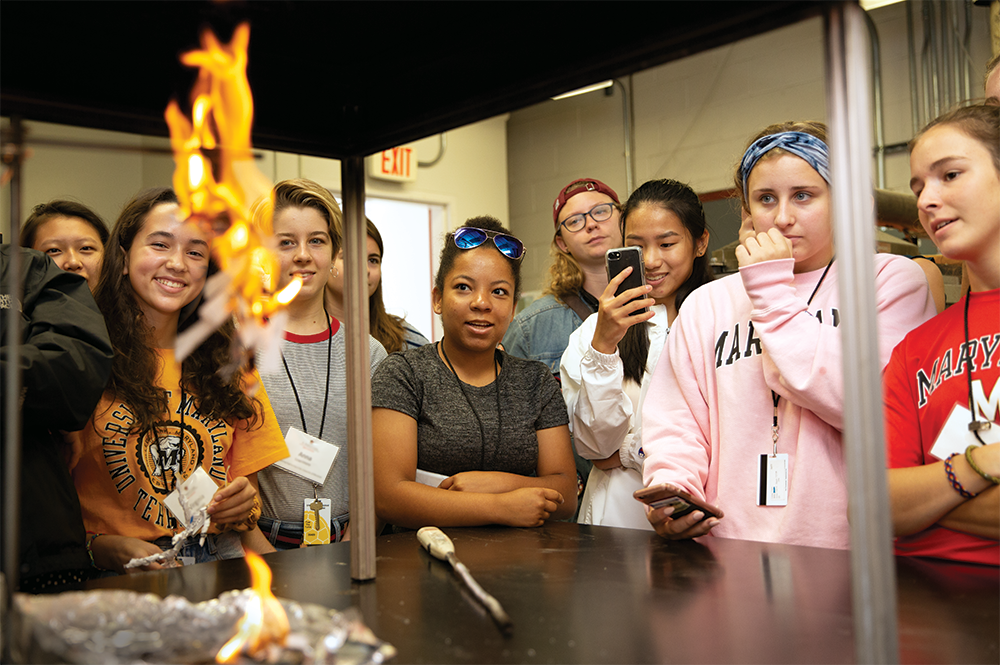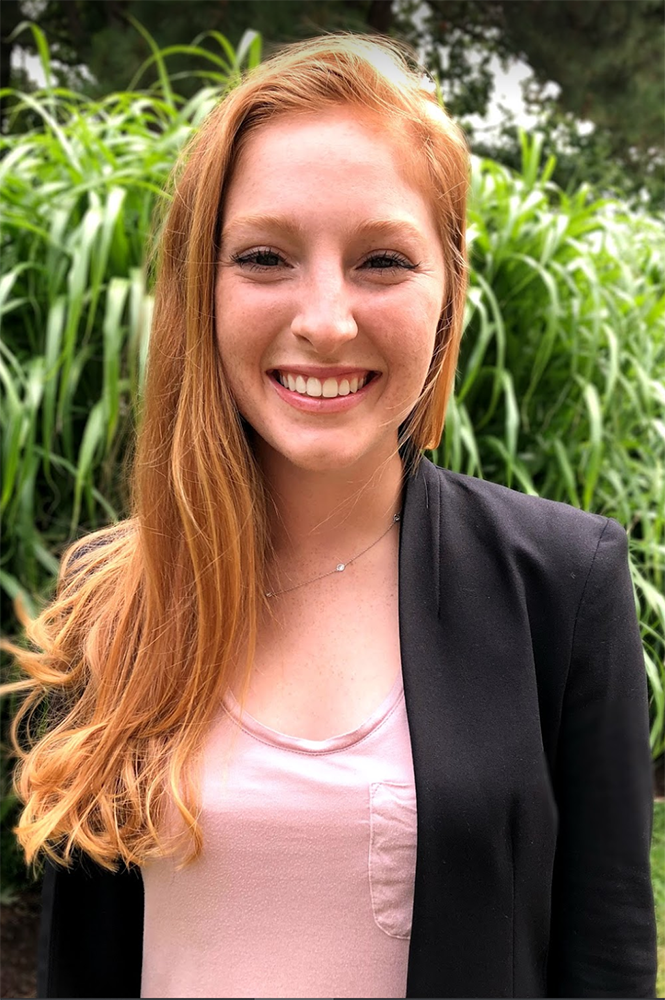News Story
Grassroots Engineering
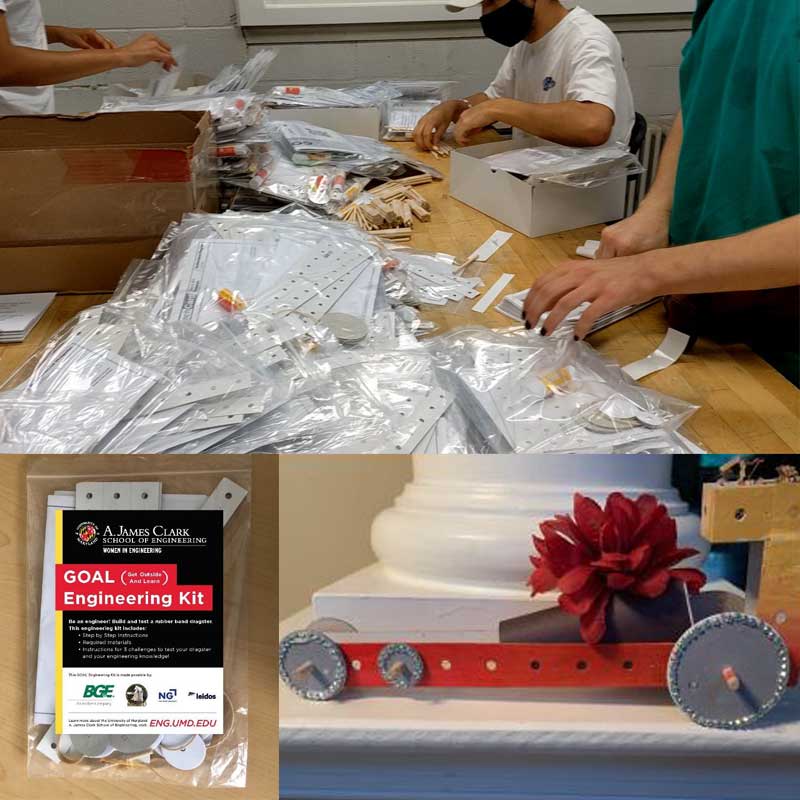
Clockwise: UMD students assembling GOAL Kits, assembled GOAL kit car, packaged GOAL kit.
Creating STEM awareness and opportunities for first-generation and under-represented students isn’t just a mission for engineering education, it’s personal, for Mechanical Engineering Senior Lecturer Vince Nguyen.
“I grew up right in this local area,” said Nguyen. “I have friends who went on to college and have advance degrees and friends who didn’t, and the only difference I see is the difference in access to opportunities and information that they had.”
This disparity awareness motivates Nguyen beyond the classroom to work with groups such as Women in Engineering (WIE) and Engineering for US All (e4usa) in creating outreach activities aimed at engaging student populations who might not get the exposure to STEM and engineering opportunities.
Just before the COVID shuttered on-campus activities in 2020, Nguyen partnered with WIE to host summer camps for middle school girls in the department’s ME Design Lab. Dubbed ‘EMpower Tools Camp,’ the workshop introduced campers to power tools, fabrication, and design in a meaningful way.
“At the camp we like to do a culminating build project that is socially relevant,” explained Nguyen. “Because something we’ve seen in under-represented groups is that they tend to go into fields where there is more of a humanitarian or personal connection. They don’t always get exposed to engineering as a way to better everything from our community on outward.”
To continue STEM opportunities in the wake of COVID and the challenges of remote schooling, Nguyen pivoted to help WIE’s efforts in developing and distributing ultimately more than 3000 Get Out And Learn (GOAL) Engineering Kits—an at-home, hands-on learning project complete with a physical kit and teacher-supported curriculum—to under-privileged and under-represented students in Prince Georges, Montgomery, and D.C. public schools.
Prince George’s County has used the kit as part of their Summer Bridge Program for incoming ninth graders. Students not only built the kits—which featured a model car capable of wheelies and spin-outs—but the project culminated in a competition complete with artistic, distance and marketing challenges. In the future, Nguyen hopes that competition will be hosted at the University of Maryland (UMD).
“We’ve seen in the past that if you can bring first-generation students to campus, their likelihood of applying is much higher,” explained Nguyen. “We can also provide them with info sessions to show them the various pathways to a college education, beyond just GPA.”
“In looking to close the gaps in education and economic equality and opportunities, we don’t need to look too far out. By effecting change in our own back yard, we can make meaningful and lasting impacts for both our communities and in our future engineers.”
Senior Lecturer Vince Nguyen
The next phase of the GOAL program includes the engagement of UMD undergraduate students through two courses via a partnership with WIE, the Department of Mechanical Engineering, and UMD’s Science, Technology and Society Program.
This new effort will support the development of future GOAL kits, while also providing unique opportunities for UMD undergraduate students. Through the courses—Scholars: Science, Technology & Society Service-Learning Practicum and a newly developed senior elective, Entrepreneurial Design Realization—students will evaluate the existing GOAL program, propose redesigns, and then develop the manufacturing, curriculum, assessment and marketing plans for the next generation of kits.
“Students will get real-world experience working on a stakeholder focused project, by having the opportunity to work with educators and administrators in the development of the kit,” said Nguyen. “And in the second course, actually implement the product. Students rarely get an opportunity produce at scale, it’s mostly theoretical. So this is an excellent way to bring manufacturing onboard to produce hundreds, if not thousands of kits.”
Beyond the practical aspects, Nguyen also points out that by engaging undergraduates in the development of future GOAL kits, they will have a direct impact on their own population. They plan to implement the revised kits during the summer of 2022 and pilot a smaller, tandem program to evaluate a new GOAL program.
“We talk about these big, multi-disciplinary global challenges, and we think it’s very important to teach our students about these challenges,” said Nguyen. “But giving students these local projects allows them to actually practice these aspects and connects them directly to how they can make community level impacts through engineering.”
In addition, Nguyen works with Volunteers for Medical Engineering (VME), a Baltimore-based, non-profit that seeks expertise in developing one-of-a-kind solutions for individuals with disabilities. Through that organization, he’s helped undergraduate and area high school students take on projects that not only enhance their STEM education, but directly improve the quality of life and access for local community members.
“These VME projects not only present really interesting design challenges,” explained Nguyen. “But in terms of impact, we can show students that engineering isn’t just fighting robots and fighter jets. They can see the immediate impact of in their client’s life, and really see the humanitarian aspects of the field.”
For his work with the organization, VME named him Faculty of the Year in 2020 and the 2021 VME Volunteer of the Year Award. In addition, earlier this year, Engineering for US All (E4USA) awarded him the Most Outstanding University Partner Award.
“In looking to close the gaps in education and economic equality and opportunities, we don’t need to look too far out,” said Nguyen. “By effecting change in our own back yard, we can make meaningful and lasting impacts for both our communities and in our future engineers.”
Published December 8, 2021
